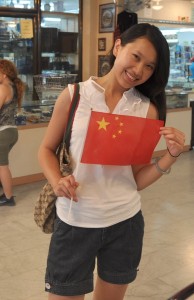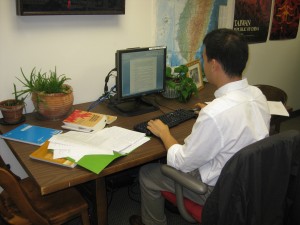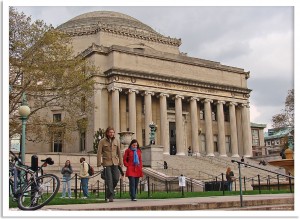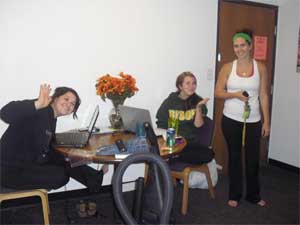Imagine the scene:
“This group of boys, dressed in silk gowns, their queues flapping, was too much for New Englanders, be they small-town folk or city dwellers, to ignore. In Springfield, for example, the boys’ dinner at a local hotel was interrupted when an American woman, dining at a nearby table, stood up and wordlessly approached the Chinese youths an started dreamily fondling their queues … They were less amused a few days later when, while visiting Hartford, American children chased them down the street, pushing and shoving each other for a better glimpse of the strange, new breed of humans that had arrived on their shores. … The more fearful among them recalled the horrific stories circulated back home about Americans and their desire to turn the Chinese boys into sideshow curiosities.”
In 1872, when 30 Chinese students arrived on America’s east coast as part of an educational program sponsored by the Chinese government, they attracted quite a bit of attention.

Yung Wing in his Yale College class album (Manuscripts and Archives, Yale University)
They weren’t the first to study in the area though. The first Chinese student ever to receive a degree in the U.S. was Yung Wing, who came to America for high school in 1847 and received his diploma from Yale University in 1852. Yung then spearheaded an educational mission to send 120 Chinese boys to study in the U.S. for 15 years, arriving in dispatches of 30 per year.
What would it have been like to be one of those Chinese students in the 1800s?
Part of the answer can be found in letters and diaries kept by the students, which authors Leil Leibovitz and Matthew Miller used to write a book called Fortunate Sons: The 120 Chinese Boys Who Came to America, Went to School, and Revolutionized an Ancient Civilization.
“We were amazed to find how meticulous these men had been about documenting their lives,” Leibovitz said about writing the book. “So you really just had to open the boxes, which to my amazement and great fortune, no one had thought of doing in the century that passed.”
Yung Wing also published a memoir recounting his experience, as did Li En Fu, one of the 120 to participate in the educational mission.
Here, in their own words, is how Chinese students experienced 19th century America.
How did they apply?
Here’s how students apply today.
Yung Wing wrote in his memoir, My Life in China and America, that he was attending the first English school in China when he got a unique opportunity:
“[Schoolmaster Rev. S.R. Brown] left China in the winter of 1846. Four months before he left, he one day sprang a surprise upon the whole school. He told of his contemplated return to America on account of his health and the health of his family. Before closing his remarks by telling us of his deep interest in the school, he said he would like to take a few of his old pupils home with him to finish their education in the United States … When he requested those who wished to accompany him to the States to signify it by rising, I was the first one on my feet.”
The 120 boys who followed him in 1872 had rather a different experience.

Six boys from the first detachment in 1872, shortly after arriving in San Francisco. From left to right: Chung Mun Yew, Liang Tun Yen, unidentified, Sze Kin Yung, unidentified, New Shan Chow. (Public domain photo)
Read the rest of this entry »










 Zita
Zita Are You Competitive Enough to Make it in America?
Are You Competitive Enough to Make it in America? 3 Things You Don't Know About Food and Why You Crave it While Living Abroad
3 Things You Don't Know About Food and Why You Crave it While Living Abroad Student Visa Tips From Visa Officers
Student Visa Tips From Visa Officers The Best Advice I Ever Got for Writing in English: ‘Treat the Professors Like Idiots’
The Best Advice I Ever Got for Writing in English: ‘Treat the Professors Like Idiots’ How I Made Myself a Good Candidate for US Admissions (and Other Advice from a Successful Applicant)
How I Made Myself a Good Candidate for US Admissions (and Other Advice from a Successful Applicant) What is the Best University in America?
What is the Best University in America? How I'm Going to Get into Medical School as an International Student
How I'm Going to Get into Medical School as an International Student Take a Tour Around my Typical American Dorm Room
Take a Tour Around my Typical American Dorm Room What Americans Think When They Hear Common English Mistakes
What Americans Think When They Hear Common English Mistakes On Being an African in the US: Navigating an Endless Set of Stereotypes
On Being an African in the US: Navigating an Endless Set of Stereotypes What Does it Mean to "Be American" as a Chinese Student?
What Does it Mean to "Be American" as a Chinese Student? Why You Will Gain 10 Pounds in America (and How to Lose it Again)
Why You Will Gain 10 Pounds in America (and How to Lose it Again)